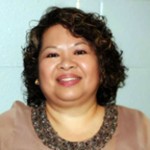- News Front Page
- Uncategorized
- Headline News
- Filipino Calgarian
- Business
- Pinoy Stories
- Community News
- Publisher's Note
- The Main Ingredient
- Views and Opinions
- Maikling Kwento
- Alberta News
- OFW – Month
- Travel News
- Health and Lifestyle
- Pinoy Toons
- Pinoy Spirit
- Entertainment
- The Philippine Lawyer
- Horoscope
- Greetings
- About Us
- Greetings From the Prime Minister
- Greetings from the President of the Philippines
- Greetings from the Premier of Alberta
- Greetings from the Mayor of Calgary
- Advertise With Us
- Disclaimer
- Subscription
Publisher's Note
- Publisher’s Note
 by CK
May is the month of flowers not just in the Philippines but also here in Calgary. A lot of my neighbors have done their spring cleaning and unfortunately I cannot cope up with them. I remember that during this time of the year my husband, Hank gets busier day by day. He takes care [...]
by CK
May is the month of flowers not just in the Philippines but also here in Calgary. A lot of my neighbors have done their spring cleaning and unfortunately I cannot cope up with them. I remember that during this time of the year my husband, Hank gets busier day by day. He takes care [...]
Visitors to Pinoytimes
Page added on October 23, 2016
Lifestyle changes that may help prevent cancer
Experts believe that one-third to one-half of all cancers can be prevented.
That’s because there are certain things about our lifestyles—our daily habits—that can make us more likely to get cancer. Here are some steps you can take today to help prevent cancer:
- Quit smoking.
- Eat well.
- Stay at a healthy weight.
- Stay active.
- Protect your skin.
- Drink alcohol wisely.
- Practice safe sex.
- Get regular checkups and screenings.
- Consider getting the HPV vaccine.
- Avoid toxins and other poisons at work and at home.
Your doctor may recommend other things based on your personal health history. For example, taking aspirin to prevent cancer may be a good idea for some people. But taking aspirin can have risks, too. So talk to your doctor about what cancer prevention tips are best for you.
Quit smoking
When you quit smoking, you lower your chances of getting many types of cancer. Smoking makes you more likely to get cancers of the lung, bladder, kidneys, pancreas, cervix, mouth, esophagus, and throat.
Quitting is hard, but you can do it with the right amount of information and support. And there are several medicines that work well to help people quit for good. For information, see the topic Quitting Smoking at my Health Alberta website (www.myHealth.alberta.ca)
And for more help, see also:
Quitting Smoking: Getting Support.
Quitting Smoking: Coping With Cravings and Withdrawal.
Quitting Smoking: Should I Use Medicine?
Eat well
Eating a variety of vegetables, fruits, legumes (for example, peas and beans), fish, poultry, and whole grains helps prevent cancer. Limit the amount of fat in your diet, especially animal fat.
Some scientists think certain natural health products might help prevent cancer, but there isn’t enough research yet to prove that. If you want to take natural health products to prevent cancer, talk to your doctor about what is safe for you to take. Eating healthy foods is still the best way to get the vitamins and minerals your body needs.
For ideas and tips, see:
- Quick Tips: Making Healthy Snacks.
- Quick Tips: Adding Fruits and Vegetables to Your Diet.
- Quick Tips: Making Fast, Healthy Meals.
Stay at a healthy weight
If you are very overweight, your chances of getting some forms of cancer are higher. And people whose extra fat is in the waist area may be at higher risk than people whose extra fat is in the hips or thighs.
Eating a healthy diet and being more active can help you reach a healthy weight. It can be hard to change habits around eating and being active. But you can do it by taking one step at a time. To learn how, see Getting to a Healthy Weight: Lifestyle Changes from my Health Alberta website (www.myHealth.alberta.ca)
For more help making these changes, see:
Healthy Eating: Starting a Plan for Change.
Healthy Eating: Overcoming Barriers to Change.
Stay active
Being active every day may prevent a number of cancers. And regular activity can help you get to and stay at a healthy weight, which can also help keep you from getting cancer.
Being physically active and getting enough sleep may work together to lower your cancer risk even more than activity alone, especially for women.
If you’re not used to being active every day, think about taking small steps to change your habits. For more information, see:
Fitness: Adding More Activity to Your Life.
Fitness: Staying Active When You Have Young Children.
Fitness: Choosing Activities That Are Right for You.
For more ideas and tips, see:
- Activity Ideas.
- Quick Tips: Getting Active at Home.
Protect your skin
Most skin cancer is caused by too much sun. Follow these steps to help prevent skin cancer:
- Stay out of the sun when you can, especially from 10 a.m. to 4 p.m., the hours of peak ultraviolet (UV) exposure.
- If you must go out in the sun, wear protective clothing, like a wide-brimmed hat, a long-sleeved shirt, and pants.
- On skin that isn’t covered by clothing, use a sunscreen that has a sun protection factor (SPF) of at least 30. Use it every day, all year, even when it is cloudy. Sunscreens that say “broad-spectrum” can protect the skin from ultraviolet A and B (UVA and UVB) rays.
- Wear sunglasses that block UV rays.
- Use lip balm or cream that has sun protection factor (SPF) to protect your lips from getting sunburned or developing cold sores.
- Avoid tanning booths and sunlamps, which emit UV radiation and can cause skin damage.
For more information, see: Skin Cancer: Protecting Your Skin.
Drink alcohol wisely
People who drink more than 2 alcoholic drinks a day—and especially those who drink more than 3 drinks a day—have a slightly higher risk for colon cancer.
If you’re a woman, you may help prevent breast cancer by limiting yourself to 1 drink a day. Using
alcohol leads to extra estrogen in the body, which raises your breast cancer risk.
Practice safer sex
Practicing safer sex helps keep you from getting HPV, a sexually transmitted infection that can cause cervical cancer in women. Safer sex includes using condoms and talking to every potential sex partner about his or her sexual history.
Get regular checkups and screenings
Visiting your doctor and dentist for regular checkups is good for your health. Your doctor can schedule regular screenings for various types of cancer, such as mammograms for breast cancer and colonoscopy for colon cancer.
Most screenings and checkups are to find cancer early, when it’s easier to treat and may even be curable. But there are some things your doctor may recommend that can actually prevent certain cancers in the first place.
There are several types of screening tests for colon cancer. But only two of them can actually prevent cancer: colonoscopy and sigmoidoscopy. These tests can find and remove polyps in the colon before they turn into cancer.
Consider vaccinations
If you are age 45 or younger, you can get the HPV shot to protect against the virus that can cause cervical cancer. Three shots are given over 6 months. The series of shots is recommended for girls at around age 9 to 13 years and can be given to females ages 9 to 45.
Males age 9 through 26 may also get the HPV shot (Gardasil) which may prevent anal cancer.
HPV vaccine recommendations may be different in your province or territory. Check with your doctor or provincial ministry of health to find the HPV vaccine recommendations in your area.
Avoid toxins and other poisons at work and at home
Living or working in unhealthy places can make you sick. Stay away from certain chemicals and other things in the environment that can increase your chances of getting cancer.
- Asbestos, an insulating material found in some older buildings, can cause tumours, lung cancer, and other diseases.
- Unsafe drinking water from a rural well polluted with pesticides or other poisons from a nearby industrial plant could cause allergies, cancer, or other problems.
- Take care when using cleaning products, paints, solvents, and pesticides. Try not to use them inside the house. If you must use them inside, use a fan to blow strong odours and fumes out of your home. Be aware that paint can release trace gases for months after you apply it. Try to use paint without volatile organic compounds (VOCs).
- Avoid being exposed to benzene, which can cause cancer. Benzene is found in tobacco smoke, stored fuels, paint supplies, and vehicle exhaust inside garages.
- Radon is a radioactive gas that causes cancer. Radon is found in rock, soil, water, some building materials, and natural gas. One survey of Canadian homes found that 1 in 1,000 homes had unsafe levels of radon. The Canadian Lung Association recommends that all homes be tested for radon levels. For more information, see the topic Radon at my Health Alberta website (www.myhealth.alberta.ca)
For 24/7 nurse advice and general health information call health Link at 811.
Source: www. myhealth.alberta.ca
Current as of November 20, 2015
Translated with permission from Healthwise Inc.© and is not intended to replace the advice of care you get from your provider or other healthcare professional. Always consult your health professional for medical diagnosis and treatment.
RELATED STORIES
LATEST HEADLINES
- Alberta implements provisional ban on temporary foreign workers
- April 2017 photo enforcement locations
- New support for Alberta’s women entrepreneurs
- Miss Universe France Iris Mittenaere Crowned MISS UNIVERSE 2016
- Growth of good jobs for Canadians the goal of the Global Skills Strategy
COMMUNITY NEWS
 WHAT IS THERE TO LOSE?
WHAT IS THERE TO LOSE? Changes to Regulations Will See Age Increased for Dependent Child
Changes to Regulations Will See Age Increased for Dependent Child ABS-CBN Files $5M Lawsuit Against Casinillo and Gonzalez For Selling Pirated Set-Top Boxes in Edmonton, Canada
ABS-CBN Files $5M Lawsuit Against Casinillo and Gonzalez For Selling Pirated Set-Top Boxes in Edmonton, Canada Forever in our Hearts
Forever in our HeartsPINOY STORIES
 More Pinoys enjoys Kapamilya Shows via ABS-CBN TV Plus
More Pinoys enjoys Kapamilya Shows via ABS-CBN TV Plus- Holy Week practices in the Philippines
PINOY SPIRIT
HAVE YOUR SAY
Lorem ipsum dolor sit amet, consectetur adipiscing elit, dolor sit ipsum.PROMOTIONAL BLOCK
Lorem ipsum dolor sit amet, consectetur adipiscing elit, dolor sit ipsum.TRAVEL NEWS
PINOY TOONS
Tags
Archives















